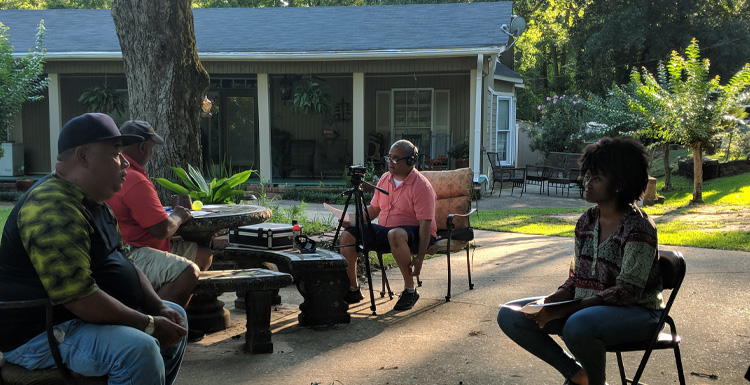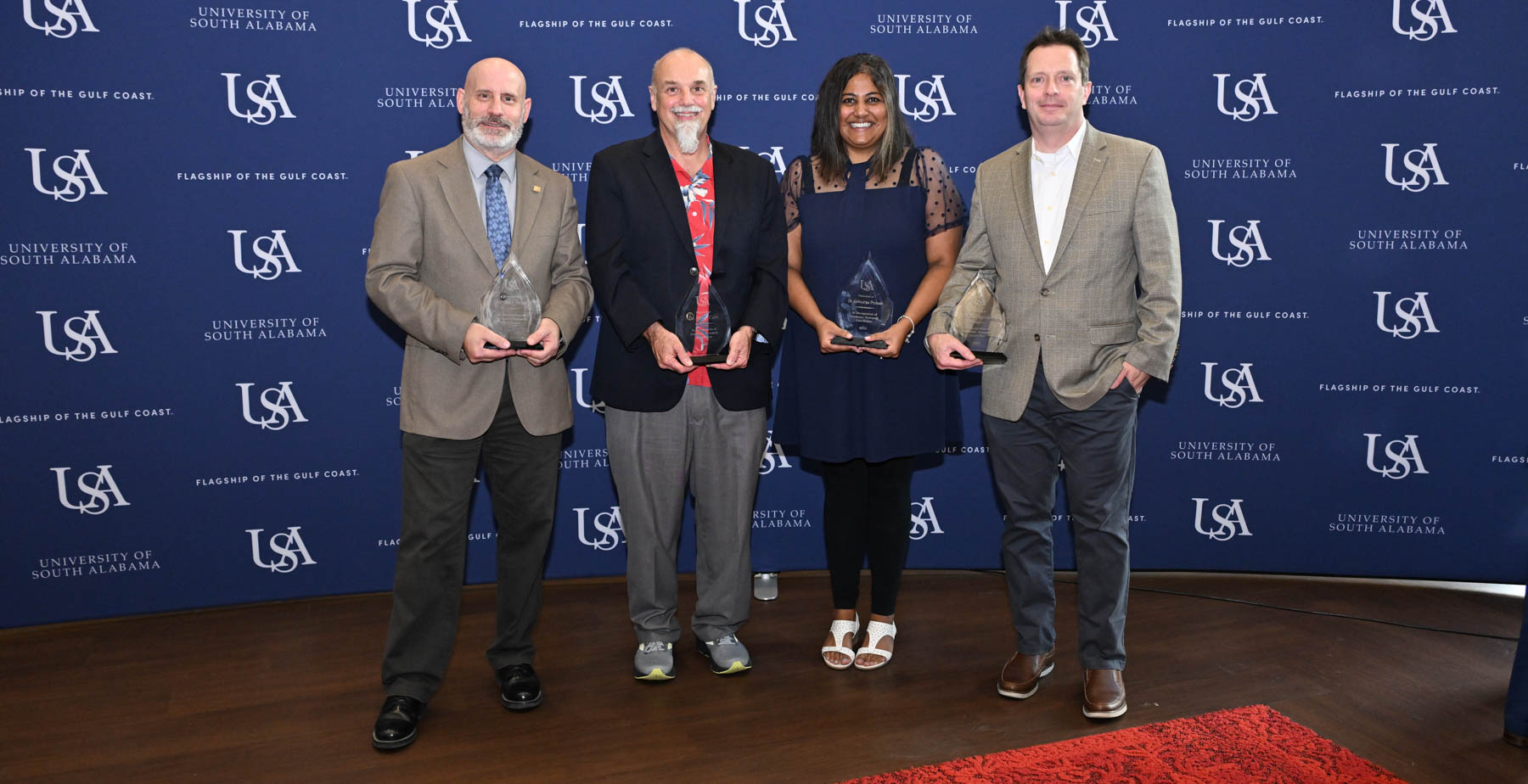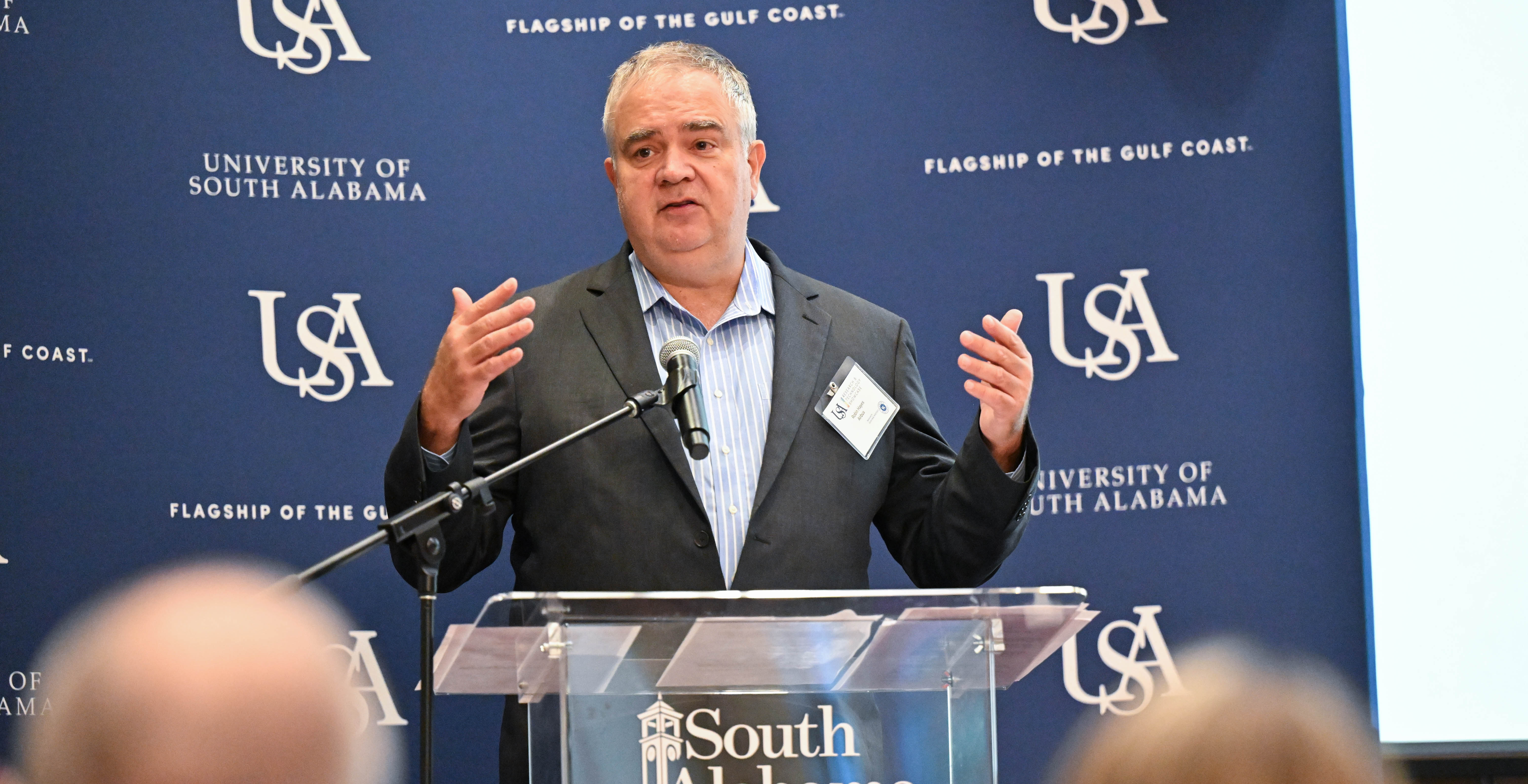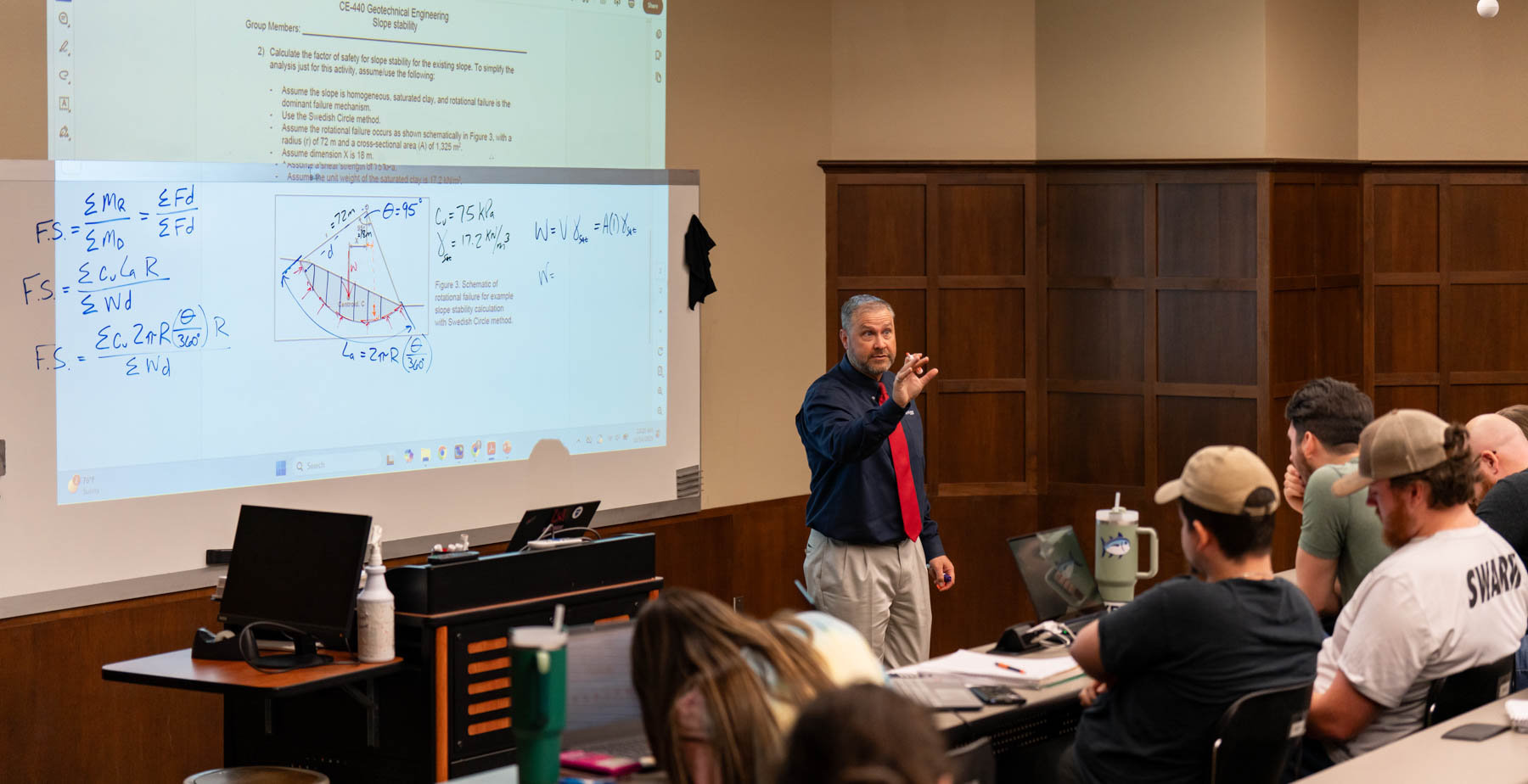Huge Boost for the Humanities
Posted on October 4, 2021

The University of South Alabama has received its largest grant ever in the humanities – $453,000 from the National Endowment for the Humanities (NEH). The funds will be used to support the Doy Leale McCall Rare Book and Manuscript Library, the Alfred and Lucille Delchamps Archeology Museum and the Honors College.
“This is the best part of my job. I actually screamed a little in my office when I saw the email,” said Angela Jordan, assistant director of research development. “I hoped we would be funded, but I also know that sometimes even if you are, the sponsor may only fund part of your project.”
This grant was made possible by the American Rescue Plan passed by Congress in March 2021. If an institution had multiple programs adversely affected by the COVID-19 pandemic, they could be submitted under one application without being thematically connected.
“Since a lot of work in the humanities involves outreach and public engagement, many organizations have taken a hit, both financially and in their ability to serve their audience” Jordan said.
Once learning of the grant offering, Jordan sent out emails to faculty members working in the humanities asking if anyone wanted to apply. Several did and the application was ultimately built around the projects that seemed to be the best fit for the NEH application.
The grant will also support South's growing engagement with the community through the dialogue of oral history and museum outreach.
Faculty like Dr. Kern Jackson, director of the African-American Studies program, and Dr. Philip Carr, director of the USA Archaeology Museum and Chief Calvin McGhee Endowed Professor of Native American Studies, have been working with greater Mobile's historically marginalized communities for years to document their stories and voices.
“It's engaging with the community through the humanities portion, as evidenced in the unifying title of our grant application, 'History, Humanities, Community, and Justice in Alabama,' said Dr. Kathy Cooke, Honors College dean and history professor, that is the most exciting part of this.”
The award will also fund two graduate students and six undergraduate students who will be helping with projects at both the library and museum.
The complexity of the application required lots of strategy -- and long walks for Cooke and McCall Library interim director Deborah Gurt.
“We both love to walk and often have our meetings while using the campus walking trails,” Gurt said. “We talked about the needs of the archives and how to make measurable progress on some of the roadblocks made worse by the pandemic.”
Cooke has held walking meetings for years, but they became more frequent during the pandemic.
“These talks started before we were aware of this specific grant opportunity, but our walks meant that we were ready with big picture ideas, and ready to formulate a strong and compelling proposal,” Cooke said.
Some of the funding will be devoted to the operation of the archives and expand oral history resources at the McCall Library.
“The grant will set in motion a process that creates new systems that will then be able to carry forward beyond the grant year,” Gurt said. “Systems for handling the raw material internally, and relationships with programs and community groups that we can continue to grow and build on.”
The archaeology museum will benefit from the grant by providing paid internships for students, summer consulting fees for K-12 teachers, and speaking fees for scholars and community members to share their knowledge with the public.
“I'm full of gratitude that the NEH recognizes the potential for the USA Archaeology Museum to be a resource and venue for bringing stories of the people who lived in Mobile and on the Gulf Coast to future generations,” said Jen Knutson, education curator for the archaeology museum. “This is going to be a lot of work, but very much worth it!”





